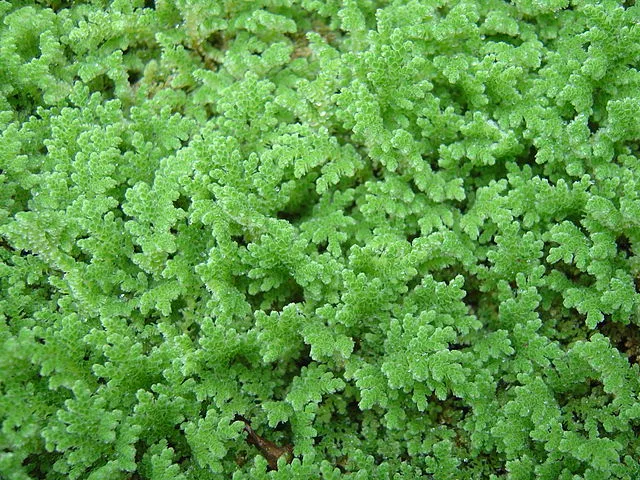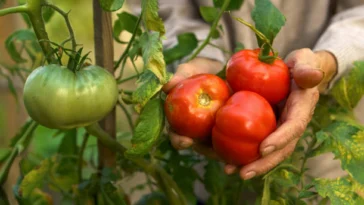Azolla, also known as mosquito fern, duckweed fern, fairy moss, or water fern, is a game-changer for sustainable farming. This fast-growing aquatic fern floats on water, doubling its biomass in 3–10 days. From nutrient-rich livestock feed to eco-friendly bio-fertilizer, Azolla offers farmers a low-cost way to boost productivity. In this post, we dive into how to grow Azolla, its many benefits, and a real-life success story from Kenya.
What is Azolla?
Azolla is a free-floating fern with tiny, overlapping scale-like leaves and roots that hang in the water. Popular varieties include Azolla Pinnata (widely grown in Kenya), Azolla Nilotica, and Azolla Imbricata. Its rapid growth and high nutrient content make it ideal for agriculture.
Optimal Growing Conditions
Azolla thrives under specific conditions:
- pH: 3.5–10 (best at 4.3–7).
- Temperature: 20–30°C.
- Light: 25–50% sunlight with partial shade.
- Humidity: 80–90%.
- Water: Fresh, high in phosphorus, low in salinity.
- Nutrients: Composted manure and phosphorus supplements.
- Root Space: ~2 feet depth to avoid soil contact.
How to Grow Azolla
Setting up an Azolla pond is simple and affordable, especially for smallholder farmers:
- Select a Site: Choose a partially shaded area to protect Azolla from excessive sunlight.
- Build a Pond: Dig a 6×4 ft pond, 20 cm deep, to produce ~1 kg of feed daily. Line with plastic sheets, secure with bricks.
- Add Nutrients: Spread a thin soil layer, add 1 kg cow dung slurry weekly, and include phosphorus supplements.
- Add Water: Fill with 10 cm of water, let settle for 2–3 days.
- Plant Azolla: Rub 500g Azolla culture per m² to break into smaller pieces for faster growth.
- Harvest: Collect after 2–3 weeks using plastic sieves.
Care and Maintenance
Azolla grows quickly, so regular care is key:
- Harvest Often: Collect every 3 days to prevent overcrowding. Dry surplus to avoid spoilage.
- Maintain Nutrients: Add organic phosphate and cow dung every 5 days.
- Manage Water: Replace 25–30% of water every 10 days; fully replace water and soil every 6 months with fresh Azolla culture.
- Keep Clean: Remove weeds and litter. Wash Azolla before feeding to livestock to remove dirt and odors.
- Water Depth: Maintain 10 cm for easy harvesting.
Why Choose Azolla?
Azolla’s benefits make it a standout for sustainable farming:
- Livestock Feed: Packed with proteins, vitamins (A, B12), and minerals (P, K, Ca, Mg). Adding 1.5–2 kg to feed boosts milk production by 15–20% and improves poultry and pig growth.
- Bio-fertilizer: Fixes nitrogen via symbiotic bacteria, enriching soil.
- Mosquito Control: Dense cover prevents mosquito larvae from breathing and egg-laying.
- Rice Companion: Increases rice yields by 20% by fixing nitrogen and blocking weeds.
- Weed Control: Acts as mulch, reducing evaporation and weed growth.
- Bioremediation: Absorbs heavy metals (Cr, Ni, Cu, Zn, Pb) from water.
Success Story: Kennedy Kariuki
Azolla is an ideal sustainable feed for my livestock. Not only can I improve the production of the farms, but it also helps me save on money meant to buy feeds. I end up using the extra Azolla as a bio-fertilizer because of its high nitrogen content.
Kennedy Kariuki, Organic Farmer, Nyandarua, Kenya
Kennedy Kariuki from Murungaru, Nyandarua County, uses two Azolla ponds to feed his goats, rabbits, and poultry, cutting feed costs. He uses surplus Azolla as a nitrogen-rich bio-fertilizer, boosting his farm’s sustainability.
Important Considerations
Azolla is low-cost but can be invasive in natural wetlands, forming dense mats up to 30 cm thick that harm aquatic ecosystems. To farm responsibly:
- Grow in controlled artificial ponds, not near natural water bodies.
- Source Azolla culture from local farmers, agricultural officers, or organizations like Biovision Africa Trust.
Get Started with Azolla Farming
Azolla farming is an affordable, sustainable way to enhance livestock feed, soil health, and environmental management. With minimal investment, farmers can achieve big results. Contact us to source Azolla culture and start your journey today!
Ready to kickstart your Azolla farm? Visit Agrijibu to buy high-quality Azolla seeds in Kenya and transform your farm with this sustainable crop!
Source: Biovision Africa Trust, The Organic Farmer (TOF) Magazine, RPKL Edition, December 2022.

